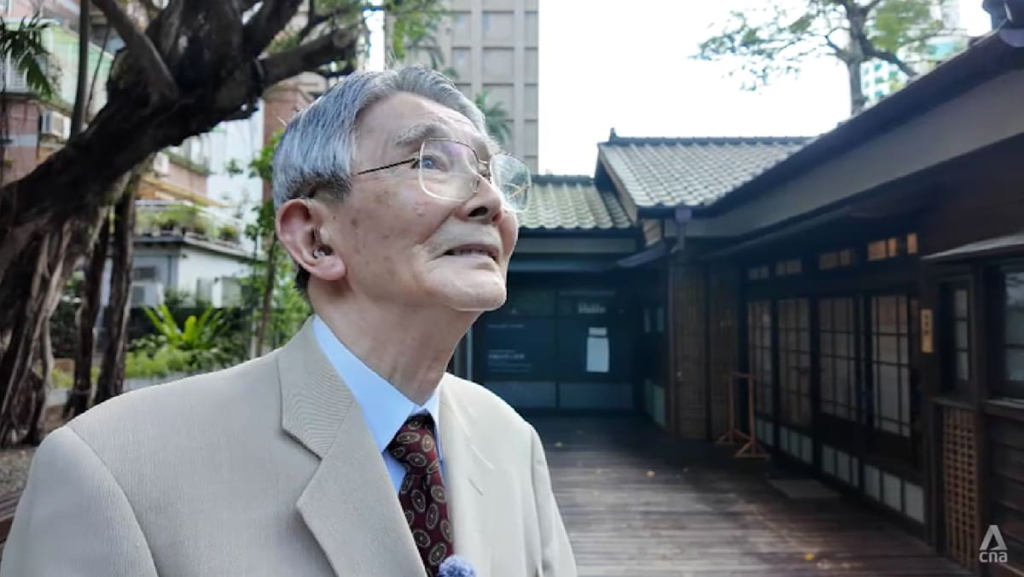WAR AND EXPULSION
Speaking to CNA from his home in Tokyo, where he now lives, Niimoto still vividly recalls the Allied bombing of Taipei on 31 May, 1945.
That day, an estimated 3,000 people were killed in air raids. Infrastructure was destroyed and buildings were flattened.
“Taipei Junior High School’s 200 students happened to be on the other side of Danshui River,” said Niimoto.
“We were on a mission to dig and create an anti-aircraft gun zone … The air raid alarm went off. We heard boom, boom. Bombs dropped on the Office of the Governor-General.
“Then, we were allowed into a bomb shelter. When the last of the 200 entered and shut the lid, a 500kg bomb dropped on the entrance of the shelter.”
He added that the earth “turned upside down with a blast”, and everything happened so quickly that they did not have time to think about death.
When Niimoto and his schoolmates emerged, they found a 20m-deep crater and the bodies of soldiers scattered around it.
Just 13 or 14 years old at the time, the incident fired up the resolve of young Niimoto, who had been taught – like many Japanese – to respect the military.
“I saw my teacher and told him I wanted to become a soldier. I was a pro-military kid then. Since I had a bicycle, I was ordered to join the bike messenger corps,” said Niimoto.
But Niimoto was still too young to enlist. Soon after, Japan lost the war, and the order came that all Japanese had to leave Taiwan.
His father was told to stay and hand over his sugar cane business to the new government.
The rest of the family left Taiwan in 1946 – a year before his father – carrying only a case and a bag of belongings each. Niimoto’s bag was filled with yokan, a sugary confection that, to him, captured the taste of childhood.
Niimoto’s grandfather bought a house in Tokyo, but like other wansei who returned as outsiders to Japan, the family struggled financially.
Niimoto took a part-time job with the US occupation forces, while his mother sewed for a sheltered workshop.
Another wansei, Susumu Ito, now 83, remembers how his family fled deep into central Taiwan after the deadly air raids on Taipei to escape further bombings. When they returned to Taipei, a deportation order was issued.
“My father tried to take me to church by bicycle. Along the main road, there were soldiers of (former Chinese leader) Chiang Kai-shek. They were watching the area. It was tense,” said Ito.
His family boarded a ship back to Japan in 1947, alongside other Japanese, when Ito was just four years old.
https://www.channelnewsasia.com/east-asia/japan-colonisation-taiwan-war-last-surviving-generation-5329901


